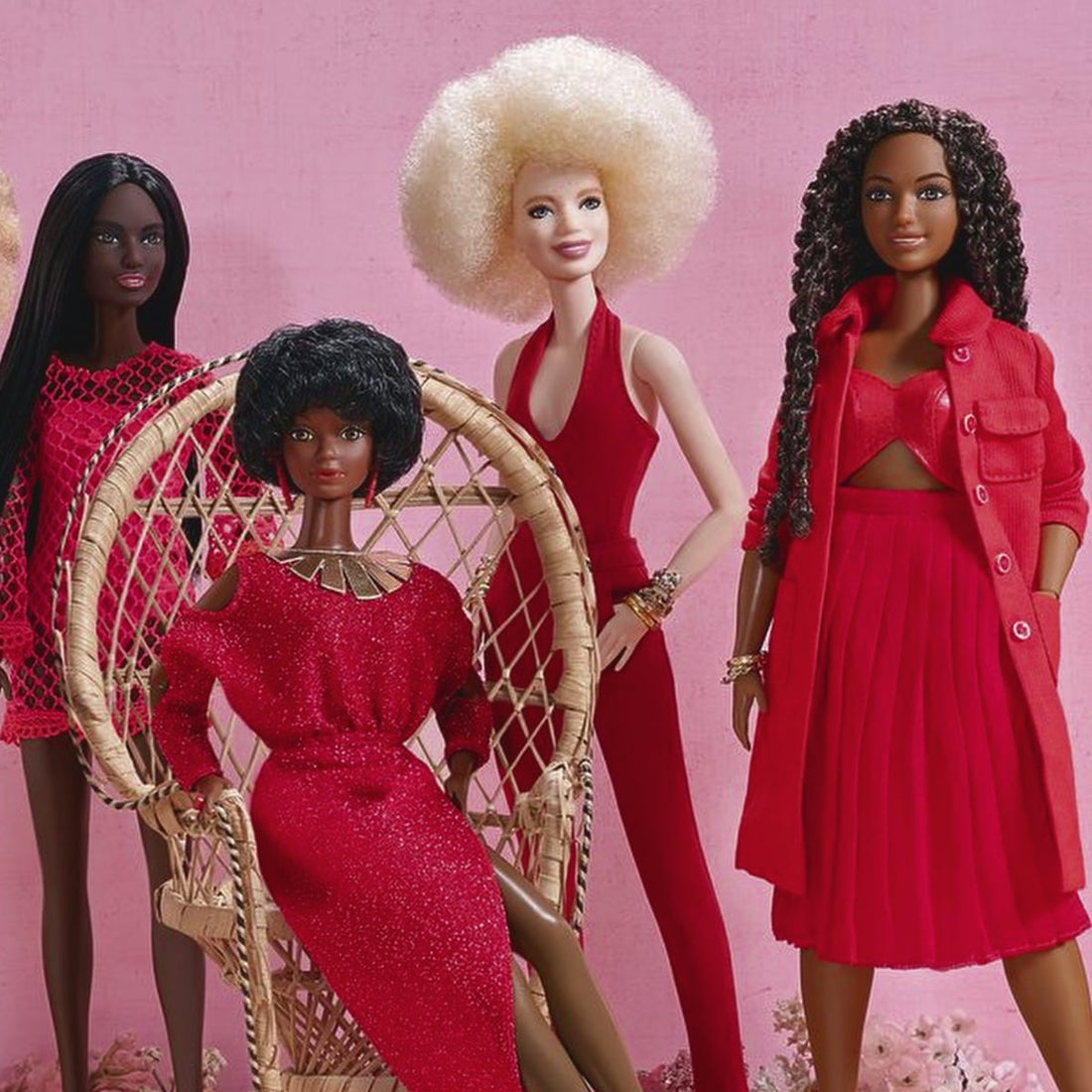
She's Black, She's Beautiful, She's Dynamite: The Importance of Black Dolls in the Toy Industry
Share

In the world of toys, representation is more than just a trend—it's a necessity. As a Black mum and entrepreneur, the recent Netflix documentary "Black Barbie" resonated deeply with me, reinforcing the mission of my small business, Amaris and Chaya. Our mission is to celebrate diversity through soft plush dolls that truly reflect the diverse beauty and reality of the world. Here’s why Black dolls are not just a Black version of white dolls but a celebration of life, diversity, intelligence, achievement, and beauty.
The Power of Representation
One of the most poignant moments in the documentary was the reference to the Clark doll test, which highlighted the psychological damage inflicted on children by the lack of representation in toys. Seeing themselves only in subservient or absent roles in their playthings sent a damaging message to Black children about their place in the world.

Mattel and Shindana Toy Company: A Historic Collaboration
A significant shout-out goes to the founders of Mattel, Ruth and Elliot Handler, who supported Shindana Toy Company, the first Black-owned toy company. This collaboration was crucial in breaking barriers and introducing Black dolls into the mainstream toy industry.

The Long Road to Black Barbie
Despite Barbie being launched in 1959, it took until 1980 for the first Black Barbie to be released. This milestone was a long time coming, and the creation of Black Barbie, designed by Kitty Black Perkins, was a culturally relevant and relatable figure for Black women and girls.

The Impact of Black Barbie
Yolanda Hester poignantly noted that calling her Black Barbie allowed Black people to be at the center, rather than merely the friend or side character. Black Barbie’s existence was a powerful acknowledgment of Black girls and women, affirming that they are here, valued, and capable of achieving great things.

Personal Reflections and Broader Realities
Growing up, I never knew Black Barbie existed, and even today, many Black folks are unaware of her. This highlights the persistent gap in representation and the importance of continuing to advocate for diverse dolls. When Black Barbie came onto the scene, she represented beauty and success, offering a vision of what was possible for young Black girls.

Why Diverse Dolls Matter
When Black dolls are designed by Black people, the result is authenticity and a wealth of ideas and creativity, as seen with Amaris and Chaya. Our dolls are crafted with thoughtfulness and attention to detail, reflecting the diverse world we live in.
Yolanda Hester emphasized that imaginative play with diverse dolls is about creating a community. It's about acknowledging the existence of various people with different features, languages, ideas, and perspectives. This type of play can broaden minds and foster inclusiveness from a young age.

How Much Has Changed?
The legacy of Black Barbie is carried forward by pioneers like Beulah Mae Mitchell, Kitty Black Perkins, and Stacey McBride-Irby. These women saw a need and fulfilled it, paving the way for more diversity in the toy industry. Their message is clear: be the first, but not the last. If you see a need, fulfill it!

Key Takeaways for Parents and Caregivers
- Representation Matters: Ensure that your child's toys reflect a diverse world. It’s important for children to see themselves and others in their playthings.
- Support Diverse Toy Brands: Invest in toys from companies that prioritize authentic representation. This not only supports those businesses but also encourages more diversity in the market.
- Teach Inclusiveness Through Play: Use playtime to introduce your child to different cultures, ideas, and perspectives. Dolls can be a powerful tool in teaching empathy and understanding.
- Encourage Creative Play: Allow your child to explore and imagine different roles and scenarios. This fosters a sense of possibility and self-worth.
- Be a Role Model: Show your child the importance of diversity and inclusion in all aspects of life. Your actions will speak volumes.
Call to Action
At Amaris and Chaya, we are committed to celebrating diversity and creating dolls that truly represent the world we live in. Visit our website to learn more about our mission and to explore our collection of beautifully crafted, diverse dolls. Together, let's change the world one doll at a time.
With heartfelt commitment to a more inclusive future,
Temilola Onabolu
Founder, Amaris and Chaya
